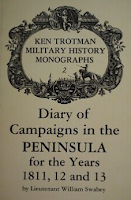‘When I awoke at about 7am on Thursday, I never dreamt that next day I would be on board one of H.M. ships bound for an unknown destination. Well, this is going to be the record of my trip to Seychelles and a diary of our stay there.’ This is the first entry in the published diaries of Husayn Fakhri al-Khalidi, a Palestinian leader who was mayor of Jerusalem for some years, and prime minister of Jordan for some days! He died 60 years ago today, but it was only very recently that a set of his diaries - covering a period when he was exiled by the British to the Seychelles - were published in English.
Al-Khalidi was born in Jerusalem, then part of the Ottoman Empire, in 1895. He completed his education at an English college in the city, and began medical studies at the Syrian Protestant College (later the American University of Beirut). With the outbreak of war in 1914, he was drafted into the Turkish army which sent him to the Ottoman Medical School in Istanbul to finish his medical studies. In 1915, he was made First Lieutenant and was posted by the army to Sinai to work in hospitals there and in the Negeb Desert. He witnessed the Battle of Gaza and the battle for Jerusalem. Injured twice, he was hospitalised himself in Damascus. Further assignments in northern Palestine and Aleppo followed.In 1920, al-Khalidi returned to British-occupied Palestine where he worked in Jerusalem as a government doctor and later as head of forensic medicine. Several more senior posts followed before, in 1934, he resigned his senior posts (head of the General Medical Board and head of the infectious and epidemics department) to pursue a political career. In early 1935, he succeeded in being elected mayor of Jerusalem, and became one of the founders (and General Secretary) of the Palestinian Arab Reform Party. At the time of the Palestinian Rebellion, it joined other Palestinian parties to form the Arab Higher Committee (AHC). But, in October 1937, he and other high-ranking AHC members were exiled by the British authorities to the Seychelles.
Al-Khalidi was released less than 18 months later, enabling him to take part in the London Conference in February 1939, but he rejected the British Government’s plans. He lived mostly in Lebanon for four years, only being allowed to return to Palestine in 1943. In 1946, he was elected Secretary of the Arab Higher Commission, remaining thereafter in Jerusalem. There he witnessed the endorsement of the Partition Plan by the UN in 1947, leading to the gradual withdrawal of the British Army, the disintegration of Palestine, and the birth of Israel. He declined to join the All-Palestine Government in Gaza in 1949, choosing to take a break to write his memoirs. In 1951, he joined the Jordanian Government as Custodian of Holy Sites in Jerusalem. Subsequently, he was appointed foreign minister, before, in fact, becoming Prime Minister of Jordan in 1957. Popular pressure, however, led to him resigning after 10 days. He later became a senator, and remained so until his death on 6 February 1962. Further information is available from Wikipedia, The Jewish Virtual Library and Encyclopedia.com
Recently, in 2020, I. B. Tauris (part of Bloomsbury) published Exiled from Jerusalem: The Diaries of Hussein Fakhri al-Khalidi as edited by Rafiq Husseini. In his forward to the diaries, Rashid Khalidi, Edward Said Professor of Modern Arab Studies at Columbia University, writes: ’[Al-Khalidi’s] diaries of his Seychelles exile were written at the end of the two decades between the two World Wars, a period when not one single colonized people, with the sole exception of the Irish, achieved full independence from their imperial rulers. His struggle, and that of the Palestinian people, against the British and against the Zionist movement they sponsored was unsuccessful, like that of every other colonized people in this period. These diaries can nevertheless help us to understand why this happened and they give us a unique perspective on this struggle, which continues to this day.’ The published diaries can be freely previewed at Googlebooks and Amazon. Here are several extracts, including the very first one.
30 September 1937
‘When I awoke at about 7am on Thursday, I never dreamt that next day I would be on board one of H.M. ships bound for an unknown destination. Well, this is going to be the record of my trip to Seychelles and a diary of our stay there. I am writing now while sitting on the north western veranda of Villa Curio in Port Victoria - Mahé Island.
I think I better record what happened on Thursday before I left Jerusalem. I had a very busy day before noon at the [Jerusalem] Municipality preparing the agenda for my Council meeting due at 3pm in the afternoon. I went home at about 1pm and returned to the municipality at 3pm sharp. Farraj, Darwish, Dajani and [Hashma] Schwilli did not come, all the others were present. We had a long agenda to deal with. With the exception of a few hot words between me and Auster on the question of the cadre, the meeting terminated successfully at 7.30pm. I thought that before going home I better clear all my trays and issue the necessary instructions to Heads of Departments, arising out of the meeting. In fact, I left nothing outstanding. At 8pm Rasem [Khalidi] came to the municipality and we stayed there till 9pm. He told me all about his trip to Gaza, Beersheba and the North. From the municipality we went to uncle Moustafa’s house where we stayed about an hour and then went home. Rasem stayed with me till 11pm.
I stayed late tonight chatting with Wahideh about the childrens schools and so on, when I ultimately went to sleep at about 12 midnight.’
10 October 1937
‘Every one on board seems to be preparing for the ceremony which was to take place, we were told, at exactly 10.40am. Out of a total of 120 (including officers) only 19 had passed the equator before and the remaining 101, including the Captain, had to go through that ceremony. At 10am we were asked to come to the front of the ship.
At 10.30 the ceremony began by Neptune (the chief engineer) with his wife (an officer) heading the procession followed by eight (seadogs) in peculiar dress. The seadogs were naked and had rope stuff around their waists and over their elbows and wearing wigs. Their faces, chests, backs smeared with black paint. Followed [by] a few musicians with mouth organs. Neptune with his wife mounted his throne and sat beside us when his assistants (barbers) and the seadogs went around the canvas tub filled with sea water. A spokesman read out the names and a few poems in languages that made everybody laugh.
They began with the captain who was wearing a white suit. He sat on a stool with his back to the tub which was now full of swimming sea dogs. A poem was read and the two barbers, one with a huge shaving brush, applied a soapy material from a bucket containing flour, soap and a blue paint, all over his beard, face, nose, head, brushing briskly. Another put a big pill of soda and citric acid in his mouth to make it effervescent. The other barber with a huge wooden razor began imitating shaving, sharpening the razor with his shoe. You should see and hear the cheers of the sailors and their roars of laughter. As soon as the shaving was complete, the captain, with full clothes, was thrown backwards into the canvas tub full of sea water, to be caught by the seadogs each holding a limb who gave him four dippings under water by hoisting him up and dipping him again, with the pill fizzing in his mouth. He was then thrown out.
This was repeated with Barker, the doctor, and every one of the 101 men.
We are now steaming to the south of the equator and approaching our destination. We were informed we shall be at Mahé at 10am tomorrow morning.’
24 October 1937
‘Fuad left for church with Westergreen this morning and Yacoub went to the Rockies. I remained alone. Breakfast as usual and writing my diary.
How long are we staying on this island? Jumeau tells me that the general impression of the Seychellois public - he also heard it from our advocate - is that we will leave before the end of December 1937. It is good after all to hear the local gossip and I usually have a talk with our guards on local affairs. For example, I had a talk with him on labour. He informs me that a black person and his family employed on a plantation by the whites get from 5-6 rupees a month, i.e. 42 piasters as an average of 1.5 piasters a day. Isn’t that sheer slavery? They speak about cheap labour in Palestine and what government and the Jews have done to raise their wages and standard of living. And the rascals call Seychelles a Crown Colony and yet look at labour wages here; I would like to see Ben Zvia and tell him all about it. And these wages are paid in Victoria - the capital. What about the outlying islands? I am sure they get only half those wages.
I was told that as the first of January is a national feast to the Seychellois, many of the inhabitants economize all the year round as everybody must have plenty to eat on the first three days of every new year. There is a lot of feasting - eating and booze. Dancing, singing and plenty tom-tom beating. If we stay till January, we will watch this rather interesting occasion.
When I told Jumeau that the wage of an unskilled Arab labourer was over two rupees - three sometimes - and the Jewish labourer from 5-6 rupees per day he was astonished. A labourer in Jerusalem gets in one day what an African gets even in a month; and they dare say that slavery is abolished.
Yacoub was imprisoned today at the Rockies on account of the rain and I had lunch alone with Fuad.’










